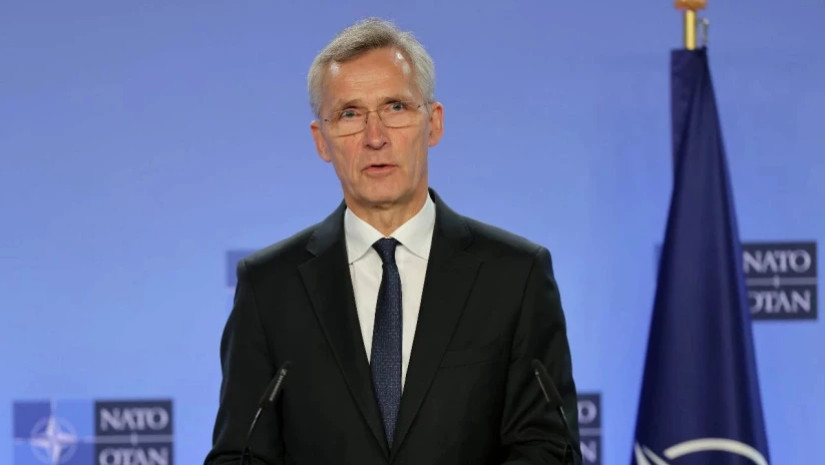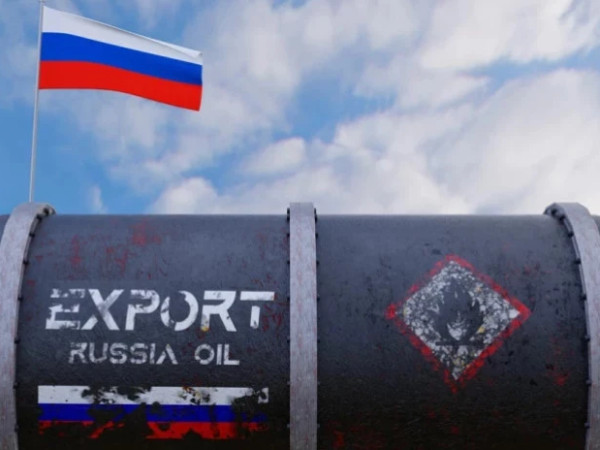Nato is in talks to deploy more nuclear weapons in the face of a growing threat from Russia and China, the head of the alliance has said.
Jens Stoltenberg added that the bloc must show its nuclear arsenal to the world to send a direct message to its foes in an interview with The Telegraph.
He revealed there were live consultations between members on taking missiles out of storage and placing them on standby as he called for transparency to be used as a deterrent.
Mr Stoltenberg said: “I won’t go into operational details about how many nuclear warheads should be operational and which should be stored, but we need to consult on these issues. That’s exactly what we’re doing.”
In a wide-ranging interview at the Nato headquarters in Brussels, he gave a stark warning about the threat from China. He also said he expected a Labour government to be a staunch Nato ally and defended new plans to Trump-proof weapons deliveries to Ukraine.
Mr Stoltenberg said nuclear transparency should be the cornerstone of Nato’s nuclear strategy to prepare the alliance for what he described as a more dangerous world.
A decade ago when the 65-year-old assumed his role at the top of the bloc, nuclear exercises were conducted in complete secrecy.
Now he openly praises a number of its 32 allies for contributing to the deterrent, including most recently The Netherlands for investing in dual-capable fighter jets that can host US nuclear weapons.
“Transparency helps to communicate the direct message that we, of course, are a nuclear alliance,” Mr Stoltenberg said. “Nato’s aim is, of course, a world without nuclear weapons, but as long as nuclear weapons exist, we will remain a nuclear alliance, because a world where Russia, China and North Korea have nuclear weapons, and Nato does not, is a more dangerous world.”
He warned that China in particular was investing heavily in modern weaponry including its nuclear arsenal, which he said would grow to 1,000 warheads by as early as 2030.
“And that means that in a not-very-distant future,” he said, “Nato may face something that it has never faced before, and that is two nuclear-powered potential adversaries – China and Russia. Of course, this has consequences.”
Mr Stoltenberg’s warnings come after the G7 sharply criticised China and Russia in a communique last week that called on Beijing to stop supplying weapons technology to Moscow and opposed China’s “militarisation” in the Pacific.
Both the US and UK have committed their nuclear deterrents to Nato, while other European allies share the burden of the responsibility by storing weapons on their territory and investing in the systems to launch them.
The number of operational nuclear weapons is top secret but estimates suggest the UK has about 40 of 225 deployed at any one time. The US has about 1,700 of 3,700.
France, Nato’s third nuclear power, does not make its atomic arsenal available to the alliance because of a long-held decision to maintain independence over its own deterrence.
Mr Stoltenberg insisted that the US and its European allies were now modernising their nuclear deterrent in the face of increased threat from Russia.
He said: “The US is modernising their gravity bombs for the nuclear warheads they have in Europe and European allies are modernising the planes which are going to be dedicated to Nato’s nuclear mission.
“Then, of course, you have the United Kingdom, which is special because the United Kingdom has its own nuclear weapons.”
On Sunday, the BBC reported that a Russian submarine that is now in Cuba was seen off Scotland’s coast last week.
The Kazan is capable of carrying advanced weapons, according to Russia’s defence ministry, but it did not enter UK waters. The Ministry of Defence nevertheless briefed the prime minister.
Vladimir Putin has repeatedly threatened to use nuclear weapons in Ukraine and has deployed warheads closer to Europe’s borders. However, he has more recently dialled down his threats.
The head of Nato refused to discuss how many warheads should be pulled from storage warehouses and put on standby, but revealed there were live consultations on the issue.


















